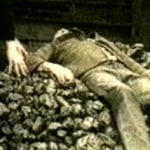 Our World
Our World  Our World
Our World  Crime
Crime 10 Dark Details of the “Bodies in the Barrels” Murders
 Animals
Animals The Animal Kingdom’s 10 Greatest Dance Moves
 Movies and TV
Movies and TV 10 Box Office Bombs That We Should Have Predicted in 2025
 History
History 10 Extreme Laws That Tried to Engineer Society
 History
History 10 “Modern” Problems with Surprising Historical Analogs
 Health
Health 10 Everyday Activities That Secretly Alter Consciousness
 History
History Top 10 Historical Disasters Caused by Someone Calling in Sick
 Animals
Animals 10 New Shark Secrets That Recently Dropped
 Movies and TV
Movies and TV 10 Forgotten Realities of Early Live Television Broadcasts
 Our World
Our World 10 Places with Geological Features That Shouldn’t Exist
 Crime
Crime 10 Dark Details of the “Bodies in the Barrels” Murders
 Animals
Animals The Animal Kingdom’s 10 Greatest Dance Moves
Who's Behind Listverse?

Jamie Frater
Head Editor
Jamie founded Listverse due to an insatiable desire to share fascinating, obscure, and bizarre facts. He has been a guest speaker on numerous national radio and television stations and is a five time published author.
More About Us Movies and TV
Movies and TV 10 Box Office Bombs That We Should Have Predicted in 2025
 History
History 10 Extreme Laws That Tried to Engineer Society
 History
History 10 “Modern” Problems with Surprising Historical Analogs
 Health
Health 10 Everyday Activities That Secretly Alter Consciousness
 History
History Top 10 Historical Disasters Caused by Someone Calling in Sick
 Animals
Animals 10 New Shark Secrets That Recently Dropped
 Movies and TV
Movies and TV 10 Forgotten Realities of Early Live Television Broadcasts
10 Unsolved Shopping Mall Mysteries
During the mid-1970s, two of the most infamous missing persons cases in US history took place within a three-month period. On December 23, 1974, 17-year-old Mary Rachel Trlica, 14-year-old Lisa Renee Wilson, and nine-year-old Julie Ann Moseley (aka the “Fort Worth Three”) all vanished without explanation during a shopping trip to a mall in Fort Worth, Texas.
Only three months later, 12-year-old Sheila Lyon and her 10-year-old sister, Katherine, both went missing during a trip to a shopping mall in Wheaton, Maryland. These cases were particularly shocking because it seemed impossible that multiple girls could simultaneously disappear from a crowded shopping mall without anybody seeing anything. Sadly, even though malls are busy public places, unexplained disappearances and unsolved murders do occur there without anybody getting caught.
10 The Edison Mall Disappearances
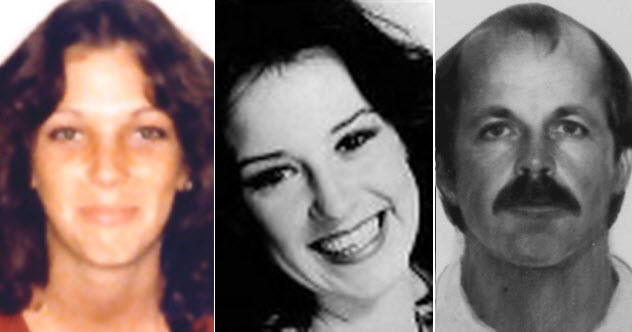
On the evening of January 16, 1981, 17-year-old Mary Opitz went to the Edison Mall in Fort Myers, Florida, with her mother and brother. During their shopping trip, Opitz told her family that she was tired and wanted to go back to their car, which was parked outside the mall’s Woolworth’s store. She was last seen exiting the mall into the parking lot.
Approximately 20 minutes later, Opitz’s mother went to their vehicle. Even though some parcels and a bag of pretzels were on top of the trunk, Opitz had vanished without explanation. Believe it or not, another young woman would vanish from that same parking lot less than one month later.
On February 11, 18-year-old Mary Hare drove to the Edison Mall to pick up her mother, who happened to work at Woolworth’s. When Hare’s mother exited the store after her shift, she found her daughter’s unlocked vehicle parked outside, but Hare was nowhere to be found. Four months later, Hare’s decomposed body was found in Lehigh Acres. She had been stabbed to death.
There were some striking similarities between the two victims, who resembled each other. Opitz and Hare both originally hailed from New York and attended the same high school. However, there was no indication that they actually knew each other. One possible suspect is Christopher Wilder, a serial killer who sexually assaulted and murdered over a dozen young women in Florida during the 1980s. However, Wilder was killed during a shoot-out with police in 1984, so both of these cases continue to remain unsolved.
9 The Disappearance Of Kristen Modafferi
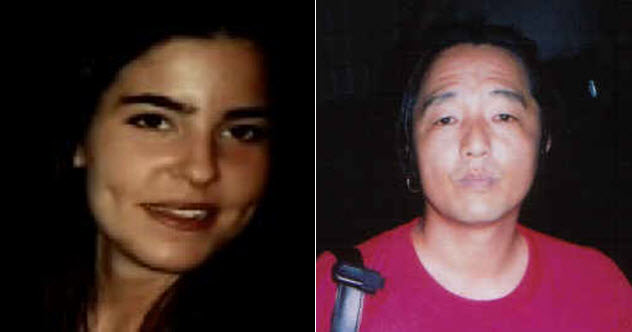
In 1997, 18-year-old Kristen Modafferi traveled from her native North Carolina to San Francisco to take a summer course at the University of California at Berkeley. She took a job at a coffee shop in the Crocker Galleria shopping mall. After her shift ended on June 23, Kristen told coworkers that she was planning to go to Land’s End and left the mall. She was never seen again.
Police used bloodhounds to track Kristen’s scent to Land’s End, but the trail ended at the shoreline. An eyewitness reported seeing Kristen talking to a blonde woman inside the mall before she left. In spite of a public appeal for her to come forward, this blonde woman has never been identified.
Weeks later, an anonymous male called a TV station claiming that Kristen had been murdered by two women over a lesbian love affair. The caller was eventually identified as Jon Onuma, whose girlfriend happened to work for the two women he named. Police believe these women likely had nothing to do with Kristen’s disappearance and that Onuma falsely implicated them because they were having problems with his girlfriend.
However, allegations of abuse soon surfaced from three other women whom Onuma had met through personal ads. While searching Kristen’s apartment, investigators found a personal ad written by a female seeking the company of friends. But it is unknown if Kristen actually placed this ad.
Investigators also searched through a diary belonging to Onuma’s girlfriend and discovered that pages had been torn out from the time period when Kristen went missing. The girlfriend claimed Onuma tore out the pages because they contained potentially incriminating information. However, there has never been any evidence to connect Onuma to Kristen Modafferi’s disappearance and she has never been found.
8 The Disappearance Of Katrice Lee
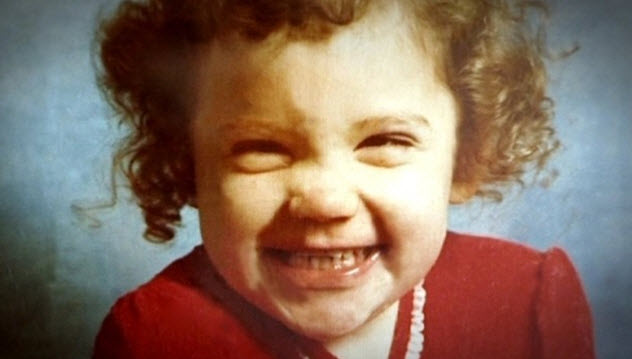
In 1981, Katrice Lee lived with her family on a British military base in Paderborn, West Germany, where her father was stationed as a sergeant in the King’s Royal Hussars. November 28 was Katrice’s second birthday, so her family decided to take her to the Navy, Army and Air Force Institutes (NAAFI) shopping complex to buy some items for a party.
Since they couldn’t find a parking spot, Katrice’s father decided to wait inside the car while Katrice’s mother and aunt took her inside a supermarket. They went to the checkout after finishing their shopping, but Katrice’s mother realized she had forgotten an item and asked Katrice’s aunt to watch her. After she had retrieved the item and returned to the checkout, Katrice was gone. Since the store was very crowded at the time, the child had somehow disappeared without anyone noticing.
A search of the shopping complex turned up no trace of Katrice. The subsequent investigation was seriously hampered by jurisdictional issues. The Royal Military Police wanted to head the search but ran into conflict with the German police since the NAAFI shopping complex was located in a German town. The German police suspected that Katrice had wandered off and fallen into a nearby river and did not initially treat the disappearance as a possible abduction.
However, a body was never found and it seemed unlikely that a little girl could make the lengthy walk to the river without any witnesses seeing anything. Katrice’s family has always suspected that she was abducted from the store, and they hope that she might still be alive somewhere. However, she remains missing nearly 35 years later.
7 The Murder Of Lester Garnier
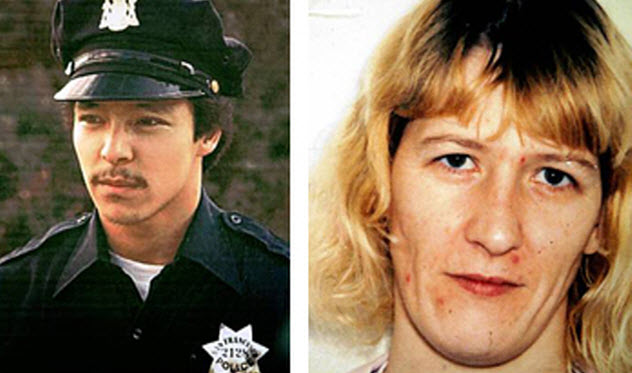
In the early morning hours of July 11, 1988, a groundskeeper at the Woodcreek Shopping Center in Walnut Creek, California, discovered that a man had been shot to death inside his Corvette in the mall parking lot. The victim turned out to be Lester Garnier, a 30-year-old undercover vice officer with the San Francisco Police Department.
The previous evening, Garnier had planned to meet a friend for a movie but canceled at the last second. He was seen driving his Corvette into the mall parking lot at approximately 11:30 PM for unknown reasons. Even though the mall was closed, a carpet layer was present at one of the stores and reported hearing what sounded like gunshots. He also saw two unidentified women walking through the parking lot and leaving in separate vehicles.
Rumors circulated that Garnier’s murder might have been connected to one of his final undercover assignments, which involved staking out and raiding a San Francisco brothel. Several police officers were implicated in the bust, and a local mayoral candidate was charged with having sex with underage prostitutes.
Years later, the investigation took a different turn when a fingerprint found on the window of Garnier’s vehicle was matched to a Scottish national named Catherine Kuntz, who fit the description of one of the women seen in the mall parking lot. Kuntz had an extensive criminal history which included prostitution and cocaine possession.
In 1991, she was charged with soliciting the attempted murder of her husband but was acquitted at trial. However, no one knows how Kuntz might be connected to Lester Garnier’s murder, and there is not enough evidence to charge her with the still-unsolved crime.
6 The Disappearance Of Mary Frances Hunter
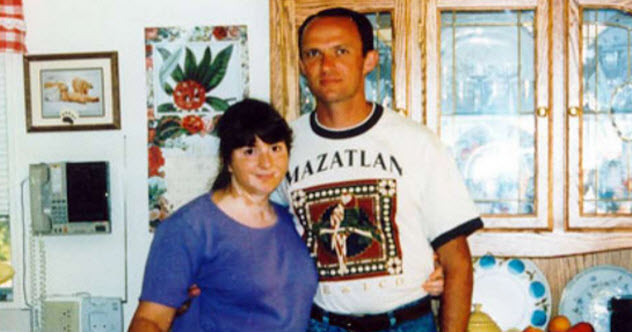
On September 1, 1996, 35-year-old Mary Frances Hunter and her husband, Derek, left their residence in Burlington, Washington, to go target shooting. They were accompanied by Frances’s dog. The couple first decided to make a stop at the Cascade Mall. According to Derek, they bumped into a man who was one of Frances’s former high school classmates and went by the name “Tony” or “Todd.”
Later on, the three of them were chatting by Frances’s vehicle in the parking lot when Derek went back inside to use the washroom. When he returned, he claimed that Frances, her male friend, and Frances’s dog were gone. Derek searched the mall for hours but could not find his wife. But when he returned the following day, Frances’s dog had returned with some unexplained scratches on him.
Two days after Frances’s disappearance, Derek finally reported his wife missing. Investigators soon discovered that her ATM card had been used to withdraw money after she went missing. But surveillance footage showed that it was actually Derek using Frances’s card to make the withdrawals.
As the years went on, Derek’s physical and mental health began to deteriorate. In 2003, on the seven-year anniversary of his wife’s disappearance, Derek committed suicide by shooting himself. He left behind a note stating that Frances had also committed suicide after requesting that he never reveal the location of her body. This has led authorities to suspect that Derek murdered Frances. But there is no evidence to suggest what actually happened, and her body has never been found.
5 The Murders Of Nancy And Joey Bochicchio

On December 12, 2007, 47-year-old Nancy Bochicchio and her seven-year-old daughter, Joey, went to the Town Center Mall in Boca Raton, Florida. They were last seen exiting the mall together at approximately 3:10 PM. Nearly nine hours later, Nancy’s SUV was discovered by a security guard in the mall parking lot with its engine running.
When the guard checked inside, he discovered the bodies of Nancy and Joey. They had both been bound with plastic ties and duct tape and forced to wear blacked-out swim goggles before they were shot to death. It was soon discovered that Nancy’s ATM card had been used at a nearby bank to withdraw $500, leading investigators to believe that the mother and daughter had been carjacked and robbed before they were murdered. Nancy’s cell phone had also been used to call 911, but it was immediately disconnected before anyone answered.
Curiously, this was far from the only carjacking to take place at the Town Center Mall in 2007. On March 23, a woman named Randi Gorenberg was carjacked by an unknown individual in the parking lot. She was subsequently shot to death and dumped from her vehicle 8 kilometers (5 mi) away.
On August 7, a woman and her two-year-old son were carjacked by a man in the mall parking garage, who forced her to drive to a nearby ATM and withdraw $600. After binding the woman and her son and putting blacked-out goggles over her eyes, the man drove the victims back to the mall but left without harming them. It’s possible that this was the same perpetrator who murdered Nancy and Joey Bochicchio. But he has never been identified, and all three of these crimes remain unsolved.
4 The Disappearance Of Ann Gotlib
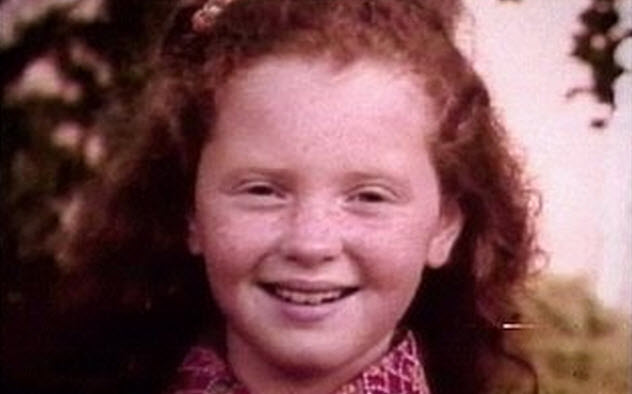
On June 1, 1983, 12-year-old Ann Gotlib spent the afternoon at a friend’s apartment in Louisville, Kentucky, before her mother called and asked her to come home. At approximately 5:30 PM, Ann and her friend rode their bicycles to the parking lot of the Bashford Manor Mall, which was located across the street from the apartment complex where the Gotlib family lived.
The two girls then parted ways, and Ann’s friend rode back home. This was the last time that Ann was seen alive. She never returned to her apartment, but her bicycle was later found propped up against the wall of one of the mall’s department stores.
In December 2008, police announced that the prime suspect in Ann’s disappearance was Gregory Oakley, who had an extensive criminal history. In September 1983, Oakley had assaulted a 13-year-old girl in her residence and went to prison for the crime. He became a person of interest in Ann’s case when it was discovered that he had made an ATM transaction at the Bashford Manor Mall around the time of her disappearance.
However, Oakley claimed that he had been out of town. Although his girlfriend initially provided him with an alibi, she changed her story after he died of cancer in 2002. She claimed that Oakley had actually asked her to wash some clothes that night. An inmate who had served time with Oakley later came forward to tell authorities that Oakley had confessed to abducting and murdering Ann after injecting her with a painkiller.
Decades earlier, Oakley had been charged with assaulting multiple young girls after injecting them with painkillers. While Oakley is the most likely suspect in Ann Gotlib’s disappearance, her body has never been found.
3 The Disappearance Of Guy-Andre Kieffer

In 2004, Guy-Andre Kieffer, a journalist with dual French and Canadian citizenship, was working in the Ivory Coast on a story about political corruption. Kieffer was investigating money laundering and illegal currency transfers within the government, but his primary focus was the country’s cocoa industry and the use of its profits to fund illegal arms deals.
On April 16, Kieffer traveled to the Prima Centre, a shopping mall in Abidjan, to meet a source who would supposedly provide him with information for his story. According to eyewitness accounts, Kieffer was waiting in the mall parking lot when a group of eight uniformed men showed up and abducted him. He has not been seen since.
Unconfirmed rumors started circulating that Kieffer had been imprisoned in the presidential palace for two days before his heart gave out while being interrogated and tortured. The investigation soon turned toward Michel Legre, the source Kieffer was supposed to meet in the mall parking lot. Legre happened to be the brother-in-law of the Ivory Coast’s first lady, Simone Gbagbo, wife of the country’s president, Laurent Gbagbo.
After Legre was arrested and charged with his role in the kidnapping, he accused several officials in the Ivorian government of being involved. In October 2005, Legre was released due to lack of evidence. Two months later, an Ivorian army officer was arrested and accused of heading the commando unit which had abducted Kieffer. But the officer was also released due to lack of evidence.
None of the other figures alleged to be involved in the kidnapping have ever been charged. In 2012, remains believed to be Kieffer were found near the town of Issia. But DNA testing confirmed that it was not him. To date, he has not been found.
2 The Disappearance Of Lucy Meadows

On July 25, 1996, Yong Meadows went to the Rivergate Mall in Goodlettsville, Tennessee, with her three-year-old daughter, Lucy. After they parked in the lot, Yong claimed that Lucy exited the backseat through the driver’s side door. Yong then went around to retrieve some packages from the passenger’s side and lost sight of Lucy.
Somehow, during this very brief window of time, Lucy mysteriously vanished without a trace. After Yong reported her daughter missing, mall security could find no trace of Lucy anywhere. However, authorities eventually noticed some discrepancies in Yong’s story.
Even though Yong initially claimed that Lucy was only out of her sight for a few seconds before she disappeared, she later said it was 10 to 15 minutes. She also failed two polygraph tests and stopped cooperating with the investigation. Yong and her husband divorced only one month after Lucy’s disappearance.
The following year, Lucy’s estranged older sister told authorities that Lucy was being held as collateral for Yong’s unpaid gambling debts. But no evidence was ever found to verify these claims. However, another family member came forward with a disturbing story in 2004.
According to this witness, he was 12 years old when he was at the Meadowses’ family home the night before Lucy’s disappearance. Although he saw Lucy there, she did not appear to be moving and the adults in the house seemed panicked. Investigators are skeptical about whether Lucy was actually taken to the mall by her mother the following day. Nevertheless, her baffling disappearance is still unsolved.
1 The Murder Of Christie Mullins

On August 23, 1975, 14-year-old Carol Reeves was contacted by a caller claiming to be a disc jockey. He invited her to participate in a cheerleading contest at the Graceland Shopping Center in Columbus, Ohio. Carol traveled to the mall with her 14-year-old friend Christie Mullins.
When the two girls arrived, they saw no sign of any cheerleading contest. So Carol entered a department store to inquire about it while Christie waited in the parking lot. When Carol returned, Christie had vanished.
Shortly thereafter, a man named Henry Newell Jr. led police to Christie’s body in a nearby wooded area. She had been bludgeoned to death. Newell claimed that he had been hiking with his family when they came across a man hitting Christie with a large board. The suspect ran away, but Newell provided police with a composite sketch.
Three days later, police arrested a man named Jack Carmen, who resembled the sketch. He confessed to Christie’s murder, took a plea bargain, and was sentenced to life in prison. However, Carmen was mentally disabled. Many people started questioning the veracity of his “confession” once it was established that Carmen had an alibi placing him at another location when the murder took place.
In December 1976, Carmen received a new trial and was acquitted. As the years went on, suspicion started falling upon the so-called “witness,” Henry Newell Jr. Newell had a history of violent behavior and had allegedly confessed to multiple people that he had committed the crime.
While testifying at Carmen’s retrial, Newell’s stepson debunked his stepfather’s original story and claimed that Newell had deliberately led his family to Christie’s body. Police have since announced their belief that Newell was Christie Mullins’s real killer and officially closed the case. But since Newell died of cancer in 2013, no one will ever know for sure.
Robin Warder has launched a new true crime podcast about unsolved mysteries and cold cases called The Trail Went Cold. Feel free to contact him here.








